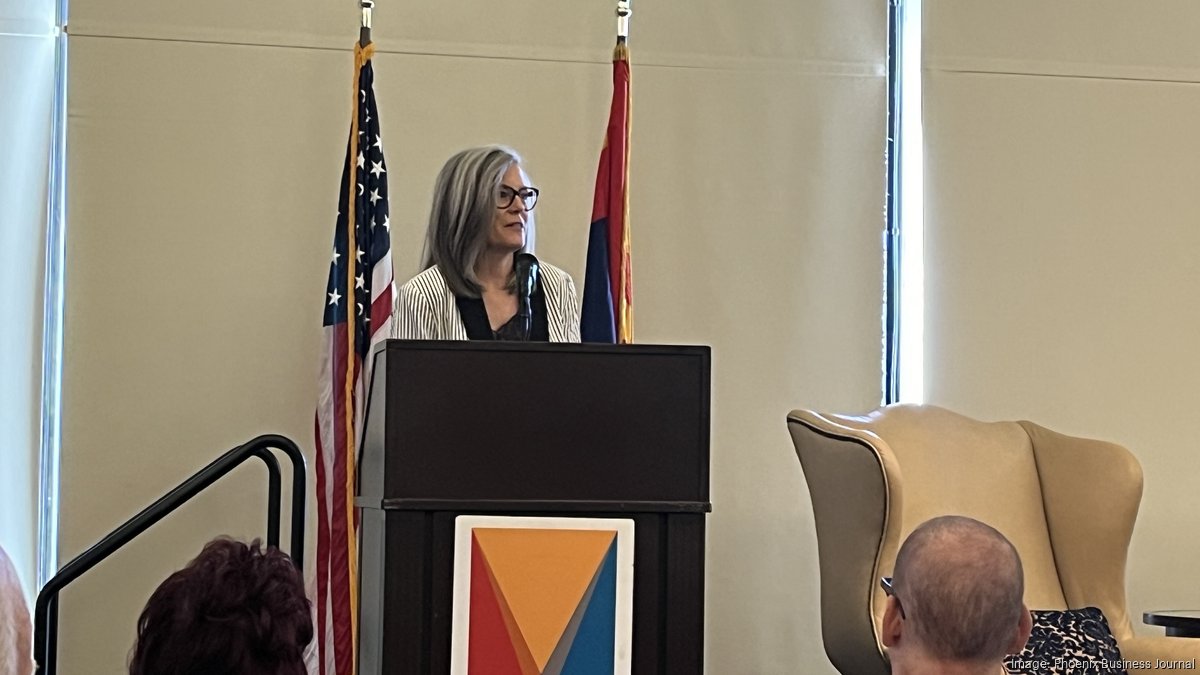
Gov. Katie Hobbs kicked off an address to the business audience at the Valley Partnership breakfast on Aug. 23 by running through three of the biggest economic development expansions happening in the Valley.Advanced manufacturers in the semiconductor space like Taiwanese Semiconductor Manufacturing Co, Intel Corp., Amkor Technology Inc are investing billions to build or expand their existing campuses. Thousands of construction workers are also required to build out the sophisticated fabs. Hobbs said efforts are underway to help address labor shortages by doubling construction and trade apprenticeships by 2026 through the Build It AZ apprenticeship program.Training the future semiconductor workforce is a local and national push, with Arizona playing a starring role in those efforts. The Business Journal reported in July that federal officials plan to invest $30 million over five years in a new initiative to train the future semiconductor workforce. West-MEC, a public high school career and technical education center that serves more than 40,000 students in Maricopa County, has already been engaging with TSMC to develop a semiconductor-related curriculum.In addition to the semiconductor industry, Hobbs said in a Q&A with Valley Partnership President and CEO Clark Princell that the state has made strides in aerospace, renewables and electric vehicles that spark further investment and job creation through suppliers of companies in those industries. She added that there is a lot of untapped potential for the state in the solar industry.Hobbs also cited access to housing as a key workforce issue facing the state. The day before she addressed Valley Partnership, Hobbs said she spoke to the Arizona Department of Housing to address the state’s affordable housing needs and was assured that efforts are not stopping any time soon.”I knew that coming into this position we had a lot of work to do,” she said.Multiple bills signed for housing affordabilityHobbs signed multiple bills aimed to ease housing affordability issues, including HB 2720 to expand access to backyard casitas; HB 2721, which encourages a diversity of homes — including duplex, triplex and townhome products — to be built as an alternative to single-family homes as more affordable options; and HB 2297, which allows developers to convert or demolish a small portion of a city’s commercial, office or mixed-use building …
See the full article on Arizona residential development, or, read more Arizona real estate investing news. Feel free to share our site with your investor friends.





